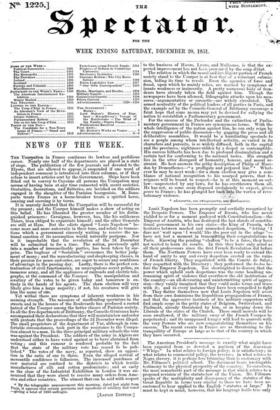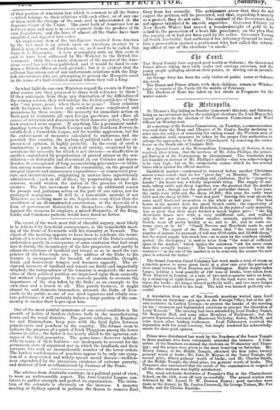The American President's message is exactly what might have been
expected from so devoted a partisan of the American "'Whigs." In what relates to foreign policy, it is satisfactory ; in what relates to commercial policy, the reverse ; in what relates to Negro slavery, it is perhaps less trimming than is customary with Mr. Fillmore's political school. The document bears irrefragable testimony to the physical prosperity of the country. To ourselves, the most remarkable part of the message is that which relates to a proposed revision of the statute-law of the -Union. Mr. Fillmore speaks of the multiplicity and discrepancy of the statutes of the Great Republic in terms very similar to those we have been ac- customed to hear applied to the English "statutes at large." It must be kept in mind, 'however, that his language holds true only of that portion of American law which is common to all the States —which belongs to their relations with each other, or of any one of them with the citizens of the rest, and is administered in the Supreme Court of the "Union. The great bulk of American law as between man and man is in every separate State the produce of its own Legislature, and the laws of almost all the States have been simplified and digested into codes. An unpleasant item of the intelligence received from America by the last mail is an attack upon an American steamer by a British man-of-war, off Greytown, or, as it used to be called, San Juan de la Nicaragua. A very peremptory note an this score is said to have been addressed by Mr. Webster to the British Go- vernment. Only the ex-parte statement of the master of the Ame- rican vessel has yet been published, and it would he hard to con- demn a British officer on such grounds ; but it is evident that the collision has arisen out of our unfortunate relations with the Eng- lish adventurers who are attempting to govern the Mosquito coast in the name of a half-civilized animal whom they call a king.



































